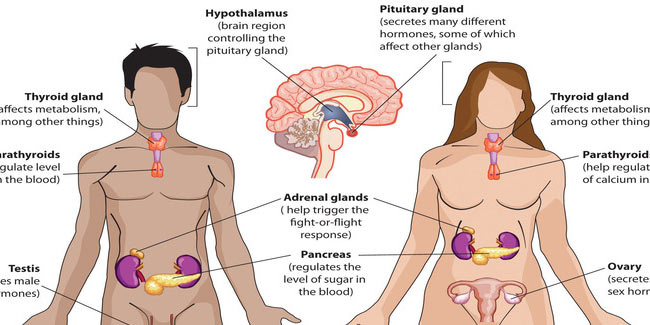What might an abnormal EKG mean for your health? An electrocardiogram, or EKG, is one of the most commonly-used tests to screen and monitor heart health. The information collected from an EKG can help indicate if there's any damage to the heart muscle, spot evidence of a potential heartbeat problem, or provide guidance about treatment plans. To safeguard their well-being properly, people must understand what an abnormal reading on an EKG could mean.
In this blog post, we'll cover everything you need to know: the different types of results your doctor looks at during the analysis process; how abnormalities in those readings might affect your health; prevention measures you can take towards avoiding future complications; and when it might be beneficial to seek medical advice. Let's get started!
What is an EKG, and why is it important to get one regularly
An electrocardiogram (EKG) is an important medical test to detect potential heart issues by measuring your heart's electrical signals. It is a non-invasive diagnostic tool that looks at the rhythm and rate of electrical activity in the heart and any areas of decreased blood flow or blocked arteries. The data collected can be useful in diagnosing various cardiac conditions such as coronary artery disease, arrhythmias, and even enlarged hearts.
Getting an EKG regularly is important because it helps detect any abnormalities that could indicate the presence of a serious cardiovascular condition early on before they become life-threatening. That way, you have time to make lifestyle changes and get treatment if needed. An abnormal EKG can also predict future health risks and help determine which medical treatments would be most effective for you.
Regular EKGs are recommended for people with high blood pressure, cholesterol levels, or a family history of heart disease. An EKG is also recommended if you’ve experienced any signs or symptoms of heart problems, such as chest pain or palpitations. Even if you don’t have any risk factors, it’s still important to get an EKG once every few years so that your doctor can keep tabs on the health of your heart.
Signs and symptoms of an abnormal EKG
1 Rapid or irregular heartbeat:
A rapid or irregular heartbeat is a sign of an abnormal EKG.
2 Breathlessness:
Shortness of breath can be another symptom of an abnormal EKG.
3 Chest pain:
Chest pain can also indicate a problem with your heart rhythm.
4 Dizziness or lightheadedness:
These feelings could be due to abnormal electrical activity in the heart.
5 Palpitations:
Feeling your heart beating quickly, skipping beats, or pausing for a few seconds can mean you have a problem with the rhythm and rate of your heartbeat.
6 Muscle weakness or fatigue:
An abnormal EKG reading might cause weak muscles or tiredness.
7 Decreased exercise tolerance:
If it’s difficult for you to exercise for as long as you used to, it could indicate an abnormal EKG.
8 Anemia:
This condition can lead to a decrease in the amount of oxygen-carrying red blood cells in your blood, leading to an abnormal EKG.
9 High blood pressure:
Hypertension is linked to abnormal electrical activity in the heart and can cause an abnormal EKG reading.
10 Swollen ankles and feet:
Fluid buildup due to inefficient circulation can impact the electrical signals that control heart rhythm and rate, resulting in an abnormal EKG reading.
11 Skin paleness or discoloration:
An EKG can cause abnormal pallor or a blueish tinge in the fingers or toes.
12 Nausea or vomiting:
Abnormal electrical signals in the heart can cause nausea and vomiting due to a lack of oxygenated blood flow to the stomach.
13 Low tolerance for heat:
An abnormal EKG may indicate decreased circulation, leading to difficulty tolerating higher temperatures.
14 Swelling in the legs or abdomen:
Fluid in these areas due to poor circulation could indicate an abnormal EKG.
15 Confusion or disorientation:
Heart rate and rhythm issues can lead to confusion, lightheadedness, or dizziness.
Causes of an Abnormal EKG
Congestive heart failure
This condition can lead to an abnormal EKG due to reduced blood flow.
High cholesterol levels
High cholesterol in the bloodstream can cause blockages in the arteries, leading to an abnormal EKG.
Heart attack or stroke
A sudden decrease in oxygen-rich blood flow to the heart can cause a temporary or permanent change in its electrical patterns and result in an abnormal EKG.
Arrhythmias
Heart rate or rhythm abnormalities resulting from diseased cardiac tissue or electrical conduction problems can also produce an abnormal EKG.
Anemia
Anemia is caused by decreased oxygen-carrying red blood cells, leading to an abnormal EKG.
Electrolyte imbalances
Changes in electrolyte levels, such as sodium or potassium, can cause changes in electrical signals and result in an abnormal EKG.
Heart valve disease
Heart valves not working properly can affect electrical activity and lead to an abnormal EKG.
Cardiomyopathy
This condition is characterized by abnormalities in the structure and function of the heart muscle, which can produce an abnormal EKG.
Drug use
Certain drugs, such as alcohol or illegal substances, can also cause an abnormal reading on your EKG.
Risk factors associated with an abnormal EKG
- A variety of factors can cause an abnormal EKG. The most common risk factors associated with an abnormal reading include:
- Our heart’s electrical signals may become less efficient and more prone to abnormalities as we age. Those over 65 are particularly at risk for an abnormal EKG.
- People with a family history of heart disease or other cardiac conditions are likelier to experience abnormal EKG readings.
- Men are more likely than women to experience an abnormal EKG due to their higher risk for coronary artery disease.
- This condition can cause changes in the structure and function of the heart and produce an abnormal EKG.
- Hypertension can lead to an abnormal EKG due to decreased blood flow and electrical conduction problems.
- Some drugs, such as antidepressants or anti-arrhythmic drugs, may disrupt your heart’s electrical signals and cause an abnormal EKG.
- These habits damage the heart muscles and result in an abnormal EKG reading.
- Being overweight increases your risk of coronary artery disease, which can lead to changes in your heart’s electrical activity and cause an abnormal EKG.
- Prolonged stress or anxiety can also increase your risk of an abnormal EKG.
Finally, people with diabetes are at an increased risk for cardiac arrhythmias and other heart issues that can cause an abnormal EKG.
FAQs
Q: What does an abnormal EKG mean?
A: An abnormal EKG result could indicate various heart-related issues, such as atrial fibrillation, heart valve abnormalities, or evidence of cardiac ischemia. It's important to speak with your doctor if you receive an abnormal reading on your EKG because the underlying cause needs to be determined and appropriate medical intervention initiated.
Q: What are the most common types of abnormal EKGs?
A: The most common type of abnormal EKG includes ST-segment elevation, which can occur when there is damage to the coronary arteries; T wave inversion, which indicates problems with the ventricles or valves and a prolonged QT interval, which means there may be an arrhythmia or cardiac conduction problem.
Q: What other tests do I need if I get an abnormal EKG result?
A: Besides an EKG, your doctor may order additional tests such as a stress test, echocardiogram, or cardiac catheterization to further investigate the root cause of your abnormal EKG result.
Conclusion
An abnormal EKG result can be a sign of various heart-related issues. It's important to speak with your doctor if you receive an abnormal reading on your EKG so that the underlying cause can be determined and appropriate medical intervention initiated. Various tests may also be ordered to further investigate the root cause of your abnormal EKG result. By understanding what an abnormal EKG result may mean, you’ll be better equipped to safeguard your heart health and well-being.













